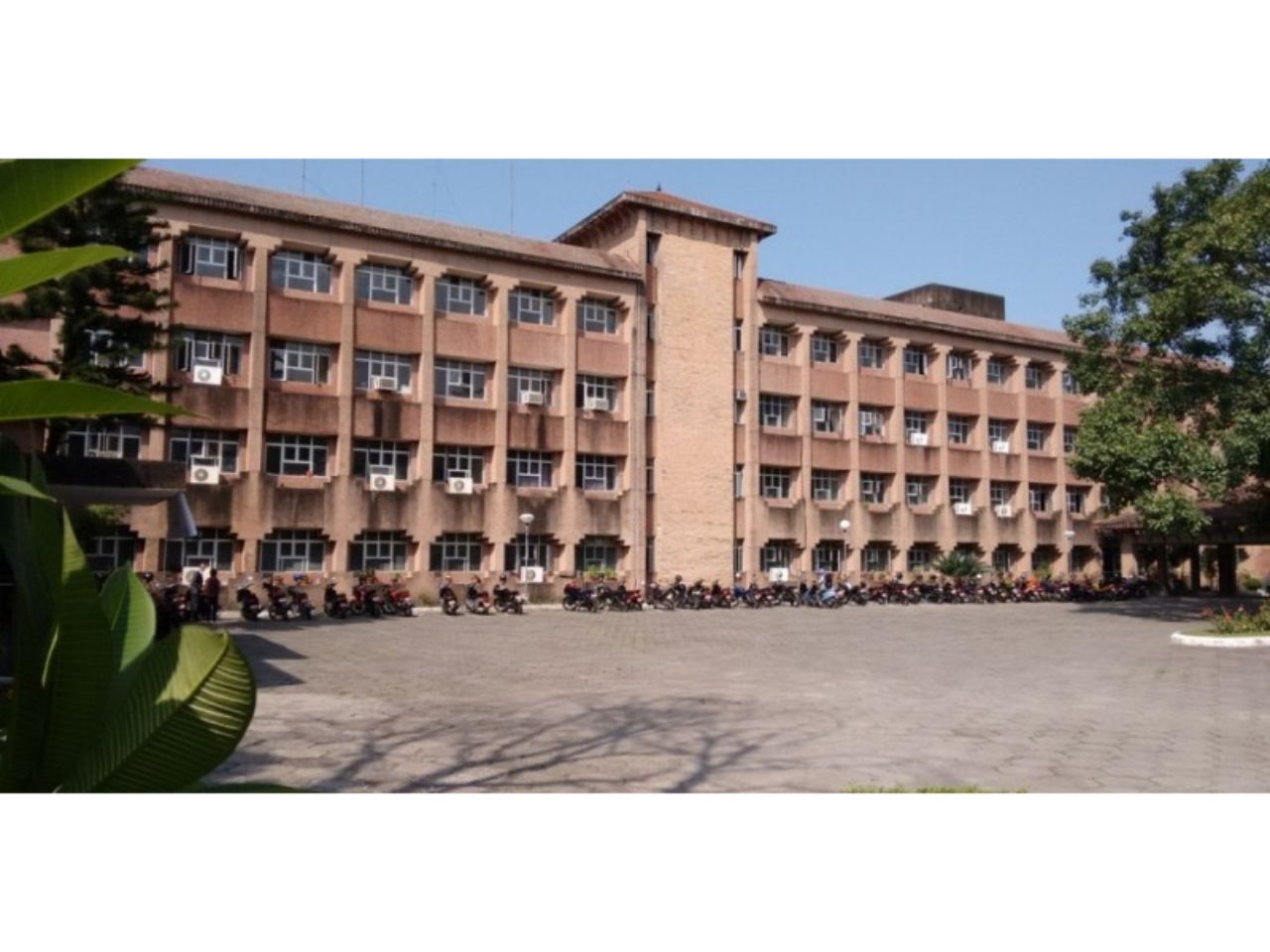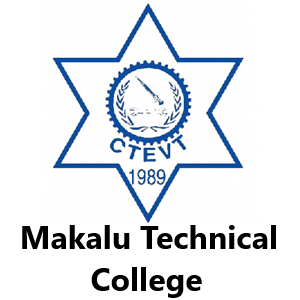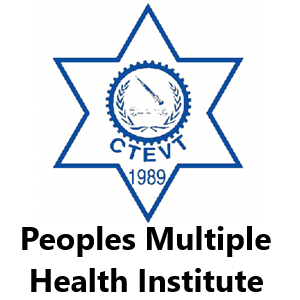Overview
BP Koirala Institute of Health Sciences (BPKIHS) was established on the 18th of January 1993 and subsequently upgraded to an autonomous Health Sciences University on 28th of October 1998 with a mandate to work towards developing socially responsible and competent health workforce, providing health care and engaging in health research. The Institute is located in eastern Nepal and it has extended its continued health services through teaching district concepts to Primary Health Care Centers, District Hospitals and Zonal Hospitals in eight districts of the region. This University is aptly named after Bishweshwar Prasad Koirala, Nepal's visionary leader in social uplifting and a firm believer in national integration.
This Institute is envisaged as one of the most successful examples of Nepal-India cooperation. The Health Ministers of the two countries signed the Indo-Nepal agreement for the collaborative development of BPKIHS on the Hindu auspicious day of Mahashivaratri (March 10, 1994).
BPKIHS has a vision of a self-governing, self-reliant international Health Sciences University aiming at attracting students and teachers from all over the world to its constantly innovative educational programs. BPKIHS has also been envisioned by the Nepalese Parliament as a center of national importance to produce skilled manpower in the health sector to meet the country's needs and also to function as a center of excellence in the field of tropical and infectious diseases.
BPKIHS has subspecialty, postgraduate and undergraduate programs. It has four colleges: Medical, Dental, Nursing and Public Health. Its Central Teaching Hospital has 763 beds and well established major clinical and basic sciences departments.

The MBBS program of BPKIHS started in 1994, is recognized by the Medical Council of Nepal, India and Sri-Lanka. It is listed in the World Directory of Medical Schools published by the WHO.
The Institute started the BDS program in 1999, which is recognized by the Nepal Medical Council. The duration of both BDS and MBBS Programs is 4½ years followed by a year of Compulsory Community Oriented Residential Rotating Internship, which is mandatory and to be completed successfully at BPKIHS and its Teaching District Hospitals. This feature is new and unique in this part of the world.
Postgraduate programs (MD/MS and MSc) were started in 1999. All the MD/MS, MSc and MPH degrees are recognized by respective councils of Nepal and several MD/MS degrees (Anesthesiology, Dermatology and Venereology, Orthopedics, Pediatrics, Surgery, Radiology, Psychiatry, Otorhinolaryngology, Internal Medicine, Pharmacology and Gynaecology & Obstetrics) are recognized by Medical Council of India (MCI) as well. MSc in basic sciences are available in Human Anatomy, Human Physiology, Medical Biochemistry and Medical Microbiology.
The BSc Nursing program was started in 1996. This program is well-recognized within and outside the country. All the nursing degrees are recognized by Nepal Nursing Council.
BSc Midwifery program is to be started from year 2021. There are separate college complexes for both BDS and Nursing programs in the BPKIHS campus.
The School of Public Health was established in 2005 and it is running a two-year MPH program. The MSc Nursing Program is running in Community Health Nursing, Psychiatry Nursing, Maternal Health Nursing, Child Health Nursing and Medical Surgical Nursing.
The MDS Program has been running since 2011 in Conservative Dentistry & Endodontics, Periodontology & Oral Implantology, Pedodontics & Preventive Dentistry and Prosthodontics. In 2014, the MDS program has been started in Oral Medicine & Radiology, Public Health Dentistry, Oral Pathology and Orthodontics.
The allied health sciences course running at present is BSc MIT, BSc Perfusion technology (2021) and BSc MLT (2021). In addition, BPKIHS organizes short-term academic programs/refresher courses for national and international students, doctors and faculty members. Continuing medical education on various aspects of health is a culture of BPKIHS.
The PhD in different disciplines has been started in 2011. In the year 2013, the Institute started several new courses/programs as follows:
DM/MCh courses have been started in the following subjects:
- DM Cardiology
- DM Gastroenterology and Hepatology
- DM Pulmonary, Critical care, and Sleep Medicine
- DM Neonatology
- MCh Urology
- MCh GI Surgery
VISION, MISSION, AND GOALS OF BPKIHS
VISION
BPKIHS has been visualized as
- A self-governing, self-reliant International Health Sciences University attracting students and teachers from all over the world to its constantly innovative educational programs.
- A national center for providing quality health services from tertiary to primary, and developing replicable and sustainable models of integrated health systems sensitive to the needs of both the individuals and the community living in urban as well as rural areas.
- A prestigious center for biomedical and health system research, and as a center of excellence for tropical and infectious diseases.
- A complete health development project through its teaching districts, which will catalyze an environment-friendly human development initiative resulting in an enhancement in the quality of life of the people of Nepal and those working in BPKIHS to ensure a high level of commitment to excellence and dedication to service.
MISSION
The main mission of BPKIHS is to improve the health status of the people of Nepal by providing holistic health care through training of compassionate, caring, communicative and socially accountable health workforce acting as agents of change and through advancement in research and innovation in service as well as education to ensure healthy individuals and families by collaborating with all stakeholders.
GOALS
Educational Goals
In terms of achieving the educational goals of the Institute, both the present curricula and future educational programs are to be need-based, integrated, community-oriented and partially problem-solving in line with innovative medical education programs epitomized in the Edinburgh Declaration of 1988. These are the basic tenets on which BPKIHS curricula are based.
In the area of service delivery, this Institute is committed to providing services not only to those coming to its teaching hospital but also to those who are not able to do so. The Institute does this by reaching out to the community that cannot reach the Institute. It is not only reaching out to the sick in the community but is committed to the active promotion of positive health and through it, improvement in the status of the community health that will serve as a measure of attainment of our service goals. The faculty at BPKIHS is expected to monitor health indicators such as Infant mortality rate, crude birth rate, crude death rate, blindness, deafness and disability rates etc. on an ongoing basis much in the same way as we monitor our individual patients in terms of established clinical parameters.
B. Fellowship in Emergency Medicine (FEM)
C. Fellowship in Uro-gynaecology (FUG)
D. Fellowship in Spine Surgery (FSS)
E. Fellowship in Endocrinology (FE)
F. Fellowship in Minimal Invasive Surgery (FMIS)
This University, aiming as a center of excellence in patient care, teaching, and research in the health sector follows an integrated and holistic approach to academics and services.
Situated in Dharan at the foothills having an area of about 700 acres, the University has a clean pollution-free environment, and water and electricity supply around the clock. The institute is committed to its social responsibility and accountability. Candidates from disadvantaged groups are given opportunities for admission to most of the academic programs.
The Institute has innovative approaches of community-based training of students and providing services to the local people through the concept of Teaching District Hospitals (learning by doing at the community level). Accordingly, students of various programs visit and/or are posted to the health institutions under faculty/specialist supervision where on one hand they get an opportunity to learn in the community set-up; and on the other hand, the local health institutions get regular qualified health workforce to provide the quality services by a BPKIHS team of faculty/specialist and interns.
Fellowship in Emergency Medicine (FEM)
Fellowship in Emergency Medicine (FEM) was started in 2013.
Emergency Medicine is defined by the International Federation for Emergency Medicine as:
“A field of practice based on the knowledge and skills required for the prevention, diagnosis, and management of acute and urgent aspects of illness and injury affecting patients of all age groups with a full spectrum of episodic undifferentiated physical and behavioral disorders; it further encompasses an understanding of the development of pre-hospital and in hospital medical systems and the skills necessary for this development.”
The Fellowship in Emergency Medicine is an 18-month training program incorporating 12 months in the Emergency Department of BPKIHS, 4 months of critical care (Anaesthesia and ICU) and up to 2 months of district and/or elective experience. The curriculum will focuses on the core elements of the specialist practice of emergency medicine, with an appropriate balance of training through service, supervised learning and teaching, and research. Support will be provided by international faculty, in particular from the Australasian College for Emergency Medicine (ACEM).
Fellowship in Urogynaecology (FU)
Urogynecology is a sub-speciality of Gynecology and in some countries is also known as Female Pelvic Medicine and Reconstructive Surgery. A urogynecologist manages clinical problems associated with dysfunction of the pelvic floor and bladder. Pelvic floor disorders affect the bladder, reproductive organs, and bowels.
Fellowship in Urogynecology is 2 years training program. The curriculum focuses on the different elements of Urogynecology, with appropriate balance of training through service, supervised teaching learning and research. Support will be provided by international faculty in particular from the Foundation of International Urogynecology Association (www.fiuga.org).
Fellowship in Spine Surgery (FSS)
Fellowship in spine surgery started in 2019.
Spine surgery is defined as: “surgery of the vertebral fractures and dislocations, Infection of the spine, tumours, degenerative diseases of the spine.”
Fellowship in spine surgery is a 2 years training program incorporating emergency, outpatient, ward and OT duties. The curriculum focuses on the core elements of the specialist practice of spine surgery, with an appropriate balance of training through service, supervised learning and teaching, and research. Support will be provided by the Association of Spine Surgeons of Nepal (ASSN) and the Association of Spine surgeons of India (ASSI).
Fellowship in Endocrinology (FE)
Fellowship in Endocrinology started in 2021. It is a 2 years training program with an appropriate balance of training through service, supervised learning and teaching, and research.
Fellowship in Minimal Invasive Surgery (FMIS)
Fellowship in minimal invasive surgery started in 2021. It is a 2 years training program with an appropriate balance of training through service, supervised learning and teaching, and research.
What attracts students and faculties to BPKIHS?
BPKIHS Academics
- BPKIHS is a leading for Health Sciences University in Nepal. It is known around the globe virtue of its innovative curricula. Every year BPKIHS gets a substantial number of candidates to enroll in its academic programs.
- Its educational philosophy was conceptualized by eminent medical educationists from Nepal, India & various international communities including WHO.
International and National Perspectives of BPKIHS
- There is a substantial number of Indian students studying in the institute. Indian nationals do not require any visa to enter Nepal.
- BPKIHS is an international university in true sense. Students from the Netherlands, Australia, Belgium, Switzerland, Norway, Germany, USA, Canada and other countries visit the institute regularly for their electives and clerkship.
BPKIHS curricula are the most innovative in this region of the globe.
- The BPKIHS curricula provide optimum exposure from primary to tertiary health care system services and the training prepares them to work efficiently both within and outside the country, in urban and rural areas, and tropical and subtropical regions.
- Training/learning is partially interdisciplinary involving students of Medical, Dental, Nursing and other allied health sciences.
Research Perspective
- BPKIHS is a leading scientific institute in Nepal.
- Amongst the other medical institutes of Nepal, the faculty members at BPKIHS publish a maximum number of scientific articles in national and internationally reputed periodicals and journals. It has made BPKIHS well-known worldwide in the field of biomedical and educational research.
- BPKIHS has its scientific journal ‘Journal the of B. P. Koirala Institute of Health Sciences’ (JBPKIHS).
Geographic Location, Climate, Weather and Environment
BPKIHS is situated in Dharan - one of the cleanest cities in Nepal, an environment-friendly city surrounded by greenery. It has an electricity supply round the clock even during load-shedding hours. In addition, there are hill stations situated at half-an-hour to threehour drive for recreation. Dharan enjoys comfortable weather around the year, which is its most unique and enjoyable feature in this region.
BPKIHS graduates
- The graduates of BPKIHS are welcomed worldwide. A substantial number of MBBS and BDS graduates go to pursue higher-level training in the USA, UK, Australia and Canada. Our graduates perform well in Postgraduate Entrance Exams in Nepal, India and abroad. They are well known around the globe for their quality health service and education.
- BPKIHS graduates get attractive placements in emerging health/ medical institutes of Nepal and across the globe.
Social accountability
It has also adopted the principle of “Social Accountability” in general.
Facilities within the campus
- The campus has sufficient playgrounds (for football, cricket, basketball, golf course, tennis court, badminton etc.).
- There are shops, canteens, a post office, banks and ATMs within the BPKIHS premises.
Contact BP Koirala Institute of Health Sciences (BPKIHS)'s administrative office for detailed information on the course, admissions, location, fees, scholarships, facilities, counseling, or eligibility.
Contact Information
The Registrar
(For General Enquiry, Administrative purpose)
B.P. Koirala Institute of Health Sciences
Dharan, Nepal
Tel : 977-25-525555
Fax: 977-25-520251
Emial: [email protected] / [email protected]
Academic Division
(For Admission)
B.P. Koirala Institute of Health Sciences
Dharan, Nepal
Tel : 977-25-525555 (Ext: 4017,2278)
Fax: 977-25-520251
Emial: [email protected]
Kathmandu Liaison Office
B.P. Koirala Institute of Health Sciences
Bansbari, Kathmandu
Tel : 977-1-4372263
Fax: 977-1-4378808
Email: [email protected]
P.O. Box 7053, Kathmandu














